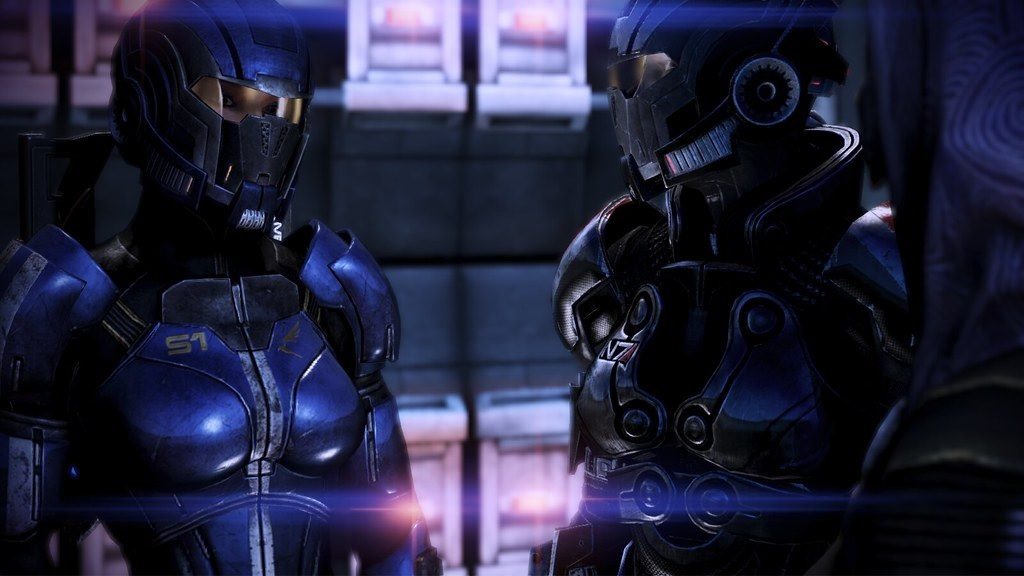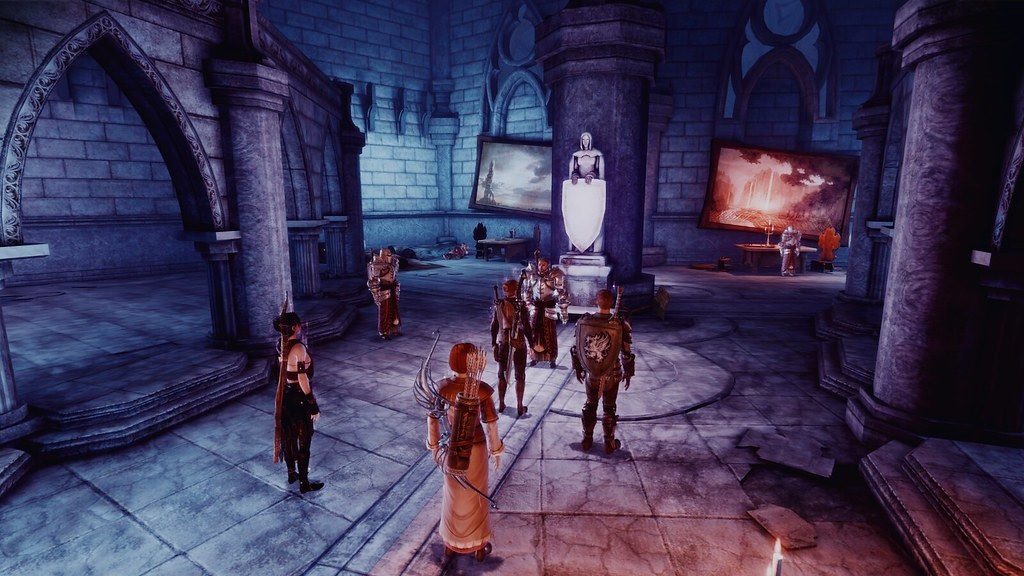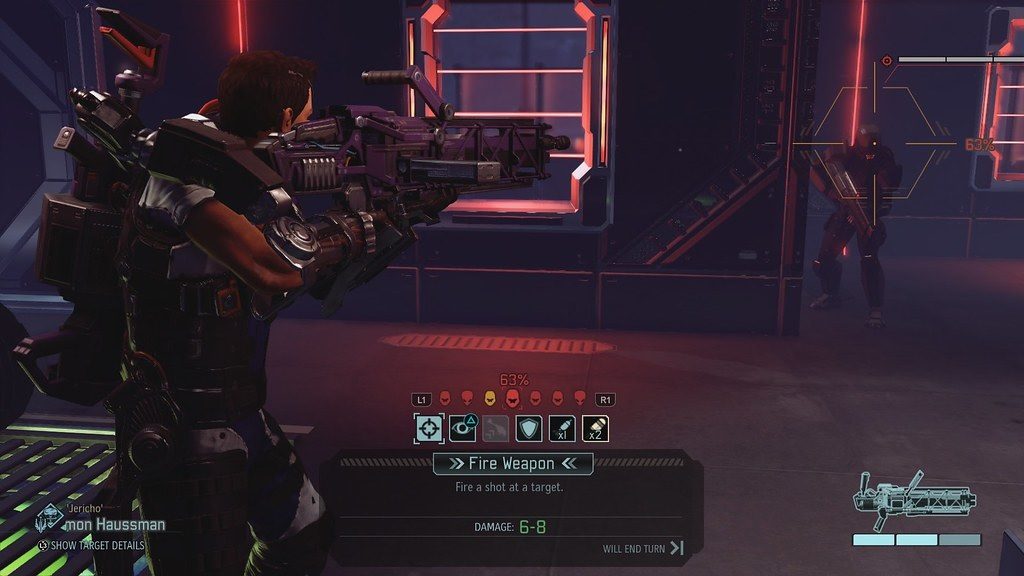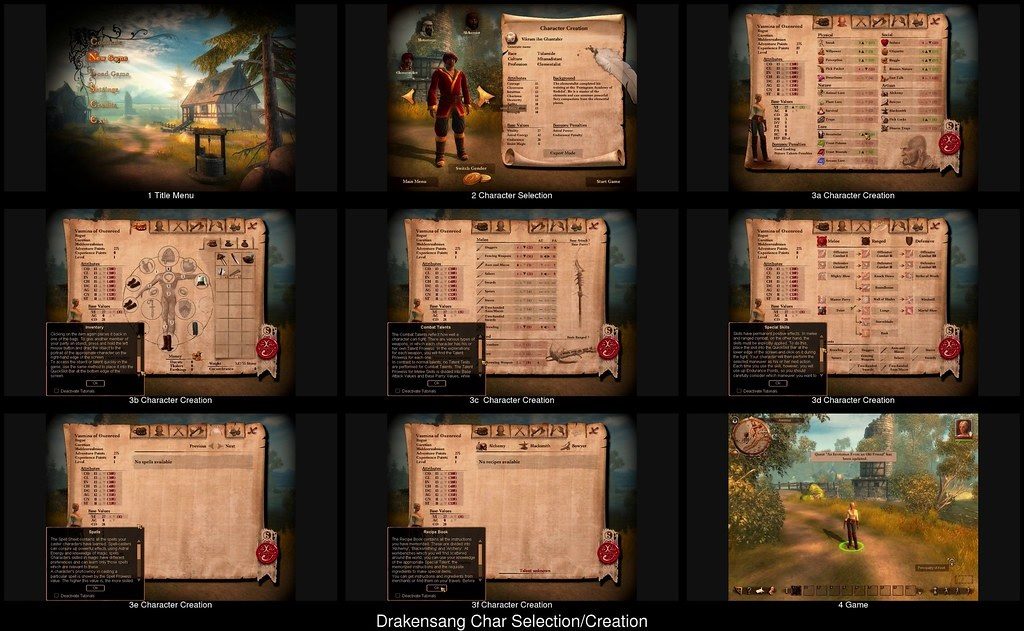by Paul Gestl
Games let us become heroes of our time. We fight the bad guys, find true love, and save the world, all in a day’s work. But before we do any of that, we have to pick a hairstyle that looks like a badass anime protagonist, hopefully without having to buy any DLCs.

Character customization has become a staple of many RPGs and other sorts of games that you wouldn’t expect as an option. But in reality, what does a bunch of attractive aesthetics actually do for players of a game?
From a technical standpoint, next to nothing.
Think about how many people are willing to shell out their hard-earned cash for new outfits or animal companions that follow the player around in MMOs. It’s evident that people discuss protagonists as if they are blank slates, despite some having a compelling backstory already in place.
They point out a “default character” for those purposes, a few examples being Commander Shepard from Mass Effect, The Dovahkiin from Skyrim and even the Final Fantasy games with their iconic heroes, let players rename characters.
So if it doesn’t change how other NPCs react to you nor the outcome of a game like the ending you get, then why let us do it? My Dragon Age Origins character aside, there is a reason the games let us do it: long-term investment and replayability.

For instance, if you move a slider too far in one direction, you end up with a character who has no chin and a monstrous overbite. I suppose you could look up Garry’s Mod or Half-Life YouTube fan-made parodies for a better picture.
When you put the effort into making a character your own, you will care enough about them to make sure that they survive until the end. This might seem obvious to most people: Of course, we care more about a character we built from the ground up. However, that begs the question, to what extent will we relate to them as people?
The funny thing is, sometimes this question can make a bad game into a great game, and I speak from personal experience. A controversy among video game streamers was the failure of X-Com 2 to live up to its original revival of the respected series.
I played both games and loved them the same. My team of commandos from the first game was made up of my college floormates, in which I was the sniper, my roommate being the Heavy gunner, etc. But none of the characters had body types that were physically possible.

I still enjoyed X-Com for the game that it was, but then X-Com 2 came out and I drifted away into the realm of tabletop RPGs instead. The sequel’s gameplay was just a remix of the first game with a few new bells and whistles tacked on at the last minute.
While X-Com 2 didn’t innovate on the surface, it still did improve the Character Customization parts: I was able to recreate my characters from my D&D games exactly as planned, but I too joined the complainers who thought it wasn’t as good as the first game.
But then I went back to the first game, after trying the second one, I didn’t expect this to happen, and yet, for some reason, it felt lacking. The meticulous way I had remade my characters was no longer an option, I simply couldn’t do it.
It was then I made the connection, that I care more about a character when I feel like I put a bit of myself in them. The extent to which I feel connected to my avatar can drastically alter my enjoyment of the game.
Now in X-Com, I feel no shame at all reloading a save if it means rescuing my characters. Heck, look at it this way, I even consider them ‘my OCs (original characters)’. Therefore it’s true that the reason Character Customization exists in games is to make characters resemble what we want them to be.
A lot of games use an edgy personality or a tragic backstory to invest people in the main character, however, those dictate what the players should already anticipate. On the contrary, character customization seems almost innocuous when connecting us to a game, ever since it has become normalized in the gaming industry.
It’s a fascinating thought process that will make you appreciate the way that character creation compels you to keep playing the game more.
